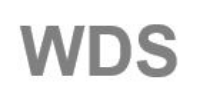HIV knowledge and associated factors among internet-using men who have sex with men (MSM) in South Africa and the United States
Background
We compared factors associated with low HIV/AIDS knowledge among internet-using MSM in South Africa and the United States.
Methods
1,154 MSM in the US and 439 MSM in South Africa, recruited through Facebook.com, completed an online survey using a US-validated HIV knowledge scale (HIV-KQ-18). Separate multivariable logistic regression models were built, one for the US and one for South Africa, using a dichotomized variable of scoring less than and equal to 13/18 (“low knowledge”) on the HIV-KQ-18 as outcome.
Results
Median knowledge scores were 16/18 for both groups of respondents. For South African MSM, factors associated with low knowledge were: a high school education or less (adjusted odds ratio [aOR]: 2.5, 95% confidence interval [CI]: 1.4–4.6), not using condom-compatible lubrication during last anal sex with another man (aOR: 1.9, CI: 1.0–3.5), number of gay or bisexual acquaintances (aOR: 0.89, CI: 0.81–0.99), being unemployed (aOR: 2.2, CI: 1.0–4.6), and testing HIV negative (aOR: 0.30, CI: 0.16–0.59) or testing HIV positive (aOR: 0.15, CI: 0.03–0.74) compared to those never HIV tested. For US MSM, associated factors were: a high school education or less (aOR: 2.7, CI: 1.9–3.8), low pride and acceptance of homosexuality (aOR: 1.3, CI: 1.2–1.5), age 18–24 (aOR: 2.3, CI: 1.3–3.8) or age 50+ (aOR: 3.2, CI: 1.6–6.3) compared to age 25–29, Hispanic ethnicity compared to white non-Hispanic (aOR: 1.9, CI: 1.1–3.2), and testing HIV positive (aOR: 0.34, CI: 0.16–0.69) or testing HIV negative (aOR: 0.59, CI: 0.39–0.89) compared to those tested.
Conclusions
Those developing programs for MSM in South Africa should weigh these data and other relevant factors, and might consider focusing education services towards MSM with limited education, less integration into gay/bisexual communities, no HIV testing history, limited use of condom-compatible lube, and the unemployed. In the United States, Hispanic MSM, those with limited education, no HIV testing history, low pride/acceptance of homosexuality, and those aged 18–24 or 50+ may be at risk for gaps in HIV knowledge.

